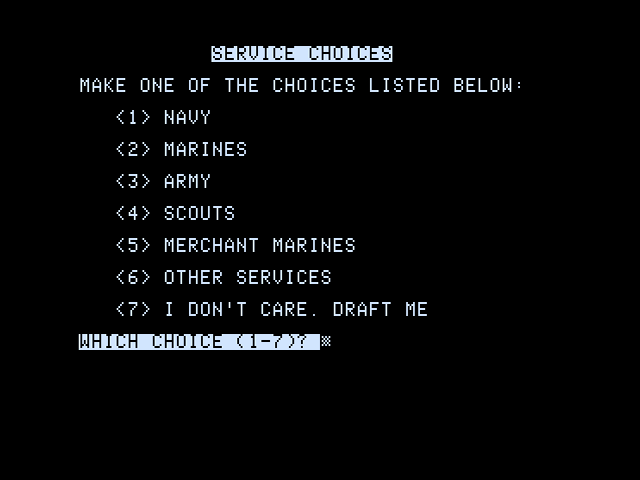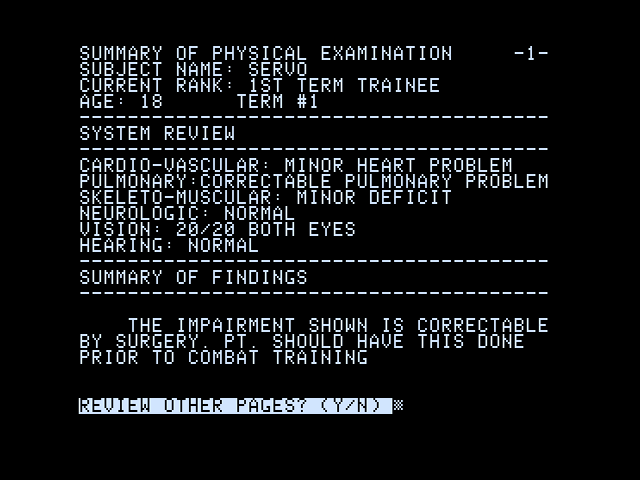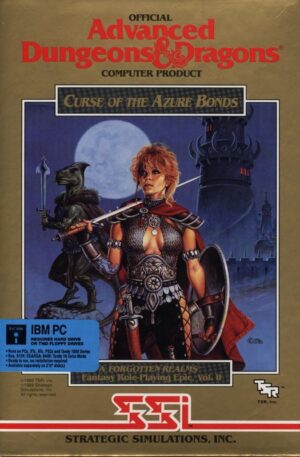Retro Replay Review
Gameplay
Space II builds on the foundation laid by Edu-Ware’s original Space I title, introducing two distinct scenarios that shift the focus from pure exploration to character-driven challenges. In “Shaman,” you step into the sandals of an itinerant spiritual leader on a wild frontier world, balancing resource management with the delicate art of persuasion. Every decision—whether to perform a rite of passage or negotiate with wary indigenous tribes—carries weight, making for a richly strategic experience.
(HEY YOU!! We hope you enjoy! We try not to run ads. So basically, this is a very expensive hobby running this site. Please consider joining us for updates, forums, and more. Network w/ us to make some cash or friends while retro gaming, and you can win some free retro games for posting. Okay, carry on 👍)
Meanwhile, “Psychodelia” dials up the risk-reward factor by allowing your character to experiment with mind-altering compounds. Administering these drugs can temporarily boost attributes like intelligence or charisma, opening new dialogue options and unlocking hidden story branches. However, overindulgence comes at a steep price: characters can suffer permanent debuffs, mental breakdowns, or even fatal overdoses, turning every dosage decision into a gamble.
Both scenarios share a unified skill progression system, but the way you allocate points and gear your character feels dramatically different. In “Shaman,” spiritual influence and cultural knowledge are your greatest assets, while “Psychodelia” encourages a high-risk, high-reward playstyle oriented around mental prowess. This diversity in approach significantly boosts replayability, as mastering one scenario offers little guarantee of success in the other.
Graphics
True to its early-1980s roots, Space II doesn’t dazzle with flashy visuals or pixel-perfect sprites. Instead, it relies on crisp text menus, simple line art, and evocative planetary maps that leave much to the imagination. While some modern players may find the aesthetic austere, the minimalistic presentation allows the mind’s eye to fill in details, lending a distinct charm to each alien environment and ceremonial setting.
Character portraits and scenario-specific icons are modest but well-crafted, providing just enough visual flair to distinguish between tribal elders, drug vendors, and mystical artifacts. Color usage is functional—bright hues highlight critical information, while muted tones keep the attention on stats and narrative prompts. For those with nostalgia for classic PC adventures, these graphics evoke an immersive retro atmosphere that complements the crunchy RPG mechanics.
Sound effects are sparse—occasional beeps underscore menu navigation, and a handful of synthesized tones signal major in-game events. Though there’s no sweeping soundtrack, the audio design is effective at heightening moments of tension, whether you’re on the verge of a mass ritual in “Shaman” or monitoring your character’s vitals under the influence of experimental drugs.
Story
Space II’s narrative strength lies in its scenario-driven structure. “Shaman” offers a study of faith and influence: you begin as an outsider looking to convert scattered settlements, and your path can lead to peaceful enlightenment, political upheaval, or spiritual tyranny. The branching storylines adapt to your successes and failures, ensuring that every playthrough tells a unique tale of devotion, betrayal, or salvation.
“Psychodelia” ventures into psychological horror and moral ambiguity. As you dose your character, journal entries grow fragmented, NPC dialogue becomes eerily surreal, and the boundary between reality and hallucination blurs. The scenario explores themes of addiction, identity, and the cost of transcendence, making each decision feel deeply personal and often unsettling.
Though the two scenarios differ in tone, they share a broader thematic thread: the consequences of pushing beyond human limits. Whether through spiritual authority or chemical enhancement, Space II asks you to consider how far you’re willing to go to achieve power—and what you might lose along the way.
Overall Experience
Space II is a focused expansion that caters to players seeking thoughtful role-playing challenges over loot-driven combat. Its dual-scenario format provides contrasting experiences—meditative and cerebral in “Shaman,” intense and risk-laden in “Psychodelia”—while maintaining a consistent set of mechanics that reward strategic planning and careful resource management.
Though its dated graphics and minimalist soundscape may not appeal to everyone, Space II’s strength lies in its richly branching narratives and the palpable tension of high-stakes decision-making. Fans of old-school computer RPGs will appreciate the depth of character progression, the nuanced scenario design, and the replay value offered by divergent story paths.
For those interested in an expansion that pushes the envelope of early RPG storytelling, Space II delivers an engaging, thought-provoking adventure. Whether you wish to rally followers with spiritual fervor or test the limits of the human mind, this add-on offers hours of compelling gameplay and narrative intrigue for discerning sci-fi role-playing enthusiasts.
 Retro Replay Retro Replay gaming reviews, news, emulation, geek stuff and more!
Retro Replay Retro Replay gaming reviews, news, emulation, geek stuff and more!









Reviews
There are no reviews yet.